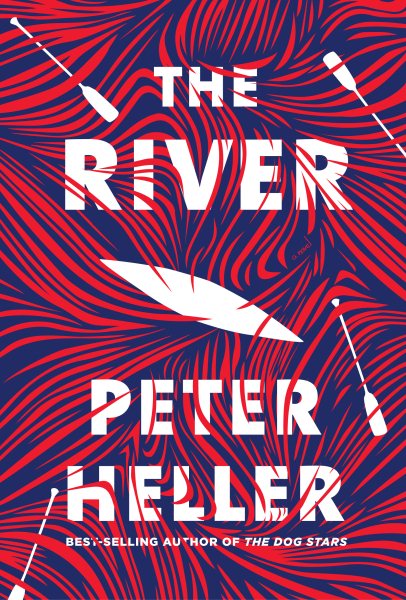By Paul Rankin. Special to the Clarion-Ledger Sunday print edition (March 24)
 I once heard that suspense in a work of fiction should feel like watching a balloon expand steadily. Each detail, each new turn or development in the plot should function like another breath going in, applying another ounce of pressure as the skin swells and grows taut until at last it reaches the breaking point.
I once heard that suspense in a work of fiction should feel like watching a balloon expand steadily. Each detail, each new turn or development in the plot should function like another breath going in, applying another ounce of pressure as the skin swells and grows taut until at last it reaches the breaking point.
From the opening line of Peter Heller’s The River, when we read of how the main characters Jack and Wynn “had been smelling smoke for two days,” the balloon begins to inflate creating a long line of tension which will escalate more and more as the drama unfolds.
It is maybe the most threadbare cliché of all, but in this case also literally true: where there’s smoke there’s fire. And the fire is upwind. And the fire is ravenous. Devouring the forest on a collision course with the country our heroes must traverse in order to reach their destination.
And they are heroes in every best sense of the word, honest and upright, loyal to one another and their noble ideals, all of which will be put to the most strenuous test as the friends come in conflict with such elemental forces as fire and ice, howling winds and raging white water rapids as well as the colorful cast of human villains they encounter along the way. Add a damsel in distress to the mix, and you have all the ingredients for a thrilling page turner.
For all its powerful narrative momentum, however, the novel ultimately becomes a profound meditation on the inherent dignity of human life and a poignant celebration of the value of friendship. Initially drawn together by a host of shared affinities ranging from classic literature and cowboy stories to fly-fishing, paddling, rock climbing, and various other forms of wilderness exploration, Jack and Wynn finally present a study in opposites.
Raised in New England, “a country of brooks and rivers, ponds, lakes; a world of water,” Wynn is a 6’5” gentle giant with a penchant for “ephemeral art” and a generous spirit that prompts him to expect the best from every person or situation. Jack, by contrast, grew up on a Colorado ranch “in the heart of the Rocky Mountains…high desert, higher peaks” He is “the mean one,” compact, fierce, and practical with an engineer’s mind and a way of assessing each new situation with cold calculation. “Jack was comfortable with heights and exposure, Wynn loved to be immersed … and never minded the chaos of whitewater.”
While the differences lead to some playful banter and a few genuinely tense moments, the divergence brings each character into sharp relief, revealing the various ways the friends complement one another, achieving “a strong but delicate balance of risk versus caution.”
The trip itself consists of five long lake crossings with portages between plus a hard paddle north along the Maskwa River through rugged backcountry to the Cree village of Wapahk on the Hudson Bay. The friends both “hungered to immerse themselves in the country…to hike, to hunt…to forage for berries…to feel what it was actually like to live in the landscape.”
What seems like the chance of a lifetime and a dream come true quickly turns into a hellish nightmare, though, as the eerie combination of advancing fire and early freeze combines with a gradual accretion of human mischief to expand the balloon more and more hurtling the story forward even as the characters develop and deepen.
Reading this novel feels something like paddling a turbulent rapids—exhilarating, dangerous, and virtually impossible to stop once you’ve gotten caught up in its flow. The River deserves a place alongside Deliverance and even the likes of Huckleberry Finn and Heart of Darkness in the elite cannon of great riparian adventures.
Paul Rankin is a freelance writer and editor with an MFA in fiction from Warren Wilson College. He lives with his family in Jackson where he is working on a novel and sundry other projects.
Lemuria has selected Peter Heller’s The River as its April 2019 selection for its First Editions Club for Fiction.


Comments are closed.